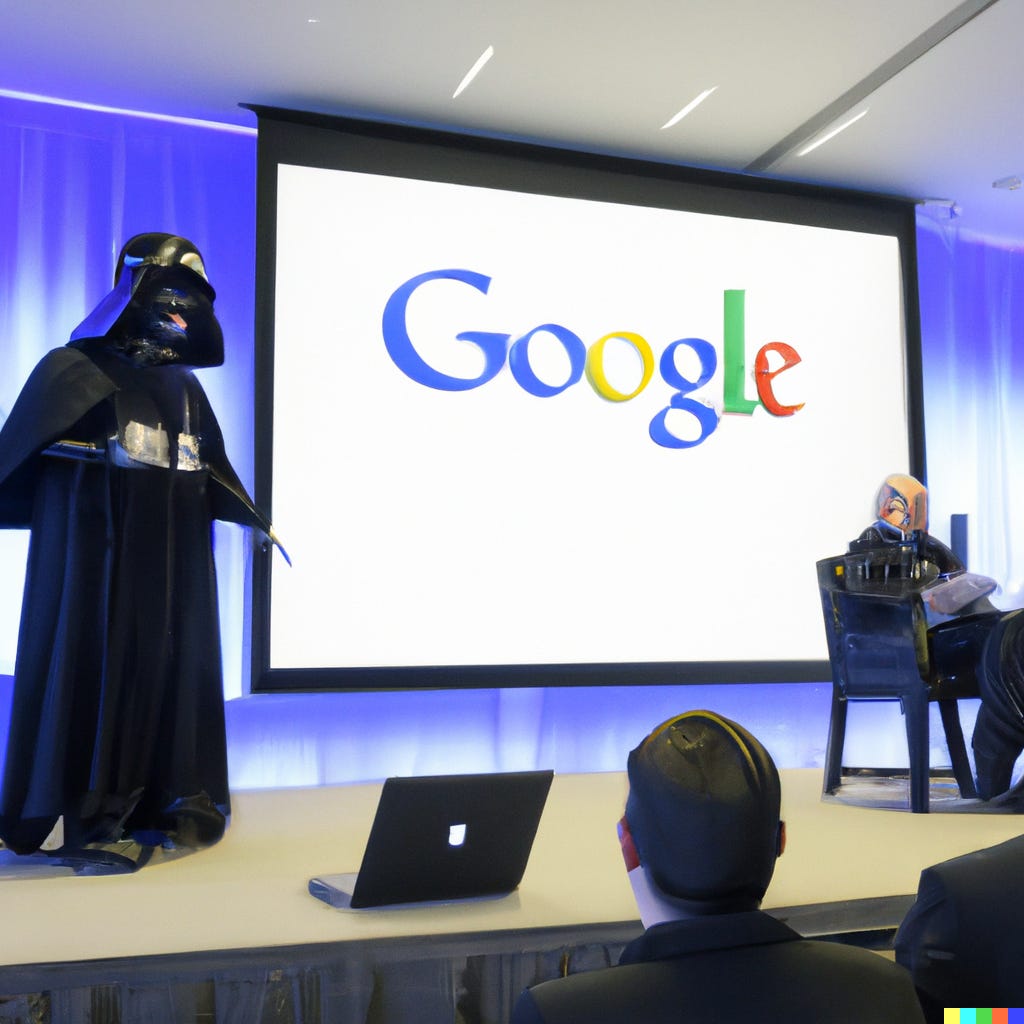Since the initial global shock the world over with OpenAI’s launch of ChatGPT this past November, Google had been pushed to the defensive with an internal ‘Code Red’.
The reaction has been swift worldwide both in its stock price being down and recently up in response to some proactive LLM AI moves. I’ve reviewed them in prior weeks with ‘The Empire Nudges Back’ and ‘The Empire Shoves Back’.
Now, the head of Google’s reorganized AI empire, the founder of one of its AI crown jewels, DeepMind, Demis Hassabis, had some new things to say on Google vs OpenAI. Specifically, that his engineers,
“are using techniques from Google’s AlphaGo LLM AI, to make an AI system dubbed Gemini that will be more capable than that behind OpenAI’s ChatGPT.
DeepMind’s Gemini, which is still in development, is a large language model that works with text and is similar in nature to GPT-4, which powers ChatGPT. But Hassabis says his team will combine that technology with techniques used in AlphaGo, aiming to give the system new capabilities such as planning or the ability to solve problems.”
Fighting words, and notable because Google to date has not directly talked about its competition.
As Google CEO Sundar Pichai described Gemini further at their developer conference Google I/O a few weeks ago,
“Gemini was created from the ground up to be multimodal, highly efficient at tool and API integrations and built to enable future innovations, like memory and planning.
While still early, we’re already seeing impressive multimodal capabilities not seen in prior models. Once fine-tuned and rigorously tested for safety, Gemini will be available at various sizes and capabilities.”
As I’ve described before, the company has been aggressively rolling out AI features into Google Search (aka ’Search Generative Experience, SGE’), on an experimental basis, and adding AI features to a growing range of Google Apps. As of course are OpenAI and its equity Partner Microsoft.
Despite these efforts, Google is still viewed as behind OpenAI and Microsoft by the media, and Wall Street. And perceptions matter, especially in the eyes of developers and potential partners, who are trying to figure out which Large Foundation Models (LFMs) they should focus their efforts around. And the race is definitely on.
Not just Google and OpenAI/Microsoft, but of course also Meta, Amazon, and dozens of other companies private and public.
Google has a lot riding on Gemini, with some important plans, as the piece above goes on to explain:
“Since ChatGPT’s debut Google has rushed out its own chatbot, Bard, and put generative AI into its search engine and many other products. To juice up AI research the company in April combined Hassabis’ unit DeepMind with Google’s primary AI lab, Brain, to create Google DeepMind.
Hassabis says the new team will bring together two powerhouses that have been foundational to the recent AI progress. “If you look at where we are in AI, I would argue that 80 or 90 percent of the innovations come from one or the other,” Hassabis says. “There are brilliant things that have been done by both organizations over the last decade.”
Google certainly has the capabilities, the infrastructure, resources, and its many Google Search and other services that are used by billions every day. And as I described yesterday, the company is also in pole position to add massive new raw Data to train its next gen LLM AI models, with billions of YouTube videos.
All the more reason to remember why we are barely in the first few hundred yards in a long marathon. And the winners are far from determined. For now, The Empire may have Game. And it’s ready to talk about it. Stay tuned.




